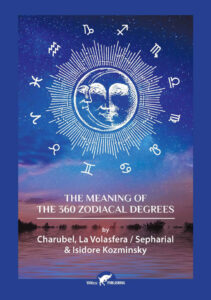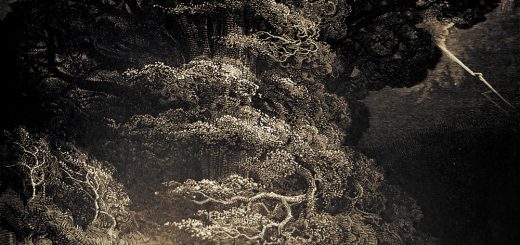Zeitgeist
Zeitgeist is the way of thinking and feeling (mentality) of an age or certain time-frame. In occult terms a Zeitgeist is an etheric storm, to use Dion Fortune’s definition, with a very strong morphogenetic force that afflicts most people psychologically and can lead to both a period of prosperity and/or enlightenment or collective insanity and decay, such as is the case with a period of war, religious, political or economic hysteria, witch-hunts (old or modern) or crisis, which are all mass-psychoses.

A Zeitgeist is a mental grid acting as an etheric storm, always partially in relation with far away astrological objects and aspectations/transits of the slow planets (Saturn, Urnus, Neptune, Pluto, Eris etc..
Astrologically a Zeitgeist is triggered and continued by certain aspects, changes in position or cycles of slow far away heavenly bodies, like Saturn, Uranus, Neptune, Pluto or TNO’s like Eris and several Kuiper belt-objects. Precessions of important mathematical points as the Aries-point and the Black Sun-Diamond axis are also important.
A Zeitgeist denotes the peculiarity of a certain era. The German word Zeitgeist has been adopted as a loanword in numerous other languages via English. The English adjective zeitgeisty is also derived from it.
Astrological knowledge of the concept of Zeitgeist gives us a second view on/experience of reality. For example, now that the whole world is in an uproar over the Great Reset rollout, the world war-like situation was already predictable to a detailed extend in 2019, by looking at the astrological configurations of a number of annual horoscopes.
This second view of reality implies that the WEF, Bill Gates, the Rockefellers, EU etc. are acting as a marionette puppets here as much as the “victimized” citizens to whom who this dystopian Great Reset is “happening to”. This brings to the surface a much deeper problem regarding the average status of human consciousness.
What we are seeing is 99.99% a reactive make-believe consciousness or fake-consciousness, that thinks itself to be sharp and in control, but is essentially still in a rusty and blurry dream state. The American occultist John Kreiter, with his masterful trilogy The Magnum Opus – The Way of the Projectionist – The Way of Death Defier, is the only writer who has clearly articulated this problem of the still dormant homo sapiens.
Aleister Crowley was too cryptic for most with his “Awake from sleeping, awake from waking” and The Matrix just is a great diversionary tactic, which gets us practically nowhere except in an enduring state of social paranoia, which has animated a kind of Zeitgeist on its own, residing in the social media. It must be noted that in EVERY Zeitgeist a very strong astrological influence is working behind the scenes. My astrological analyses/predictions of the war-like situation that started in 2020 can be viewed here:
De history of the term Zeitgeist

The individual and the Zeitgeist are seldom a good match.
The poet and philosopher Johann Gottfried Herder is considered to be the creator of the term. He first wrote of the “Zeitgeist” in 1769 in his work Kritische Wälder oder Betrachtungen, die Wissenschaft und Kunst des Schönen, which was published in Riga and was based on more recent writings. In this work, Herder polemicised against the philologist Christian Adolph Klotz and his work Genius Seculi, which was published in Altenburg around 1760.
In his work, Klotz had endeavoured to develop instruments and measurement criteria that transcended time in order to detect the peculiarity of a particular epoch. The expression genius saeculi (“spirit of the age/century”) – in contrast to genius loci (“spirit of the place”) – was unknown in antiquity, but already established in the early modern period and can be found long before Klotz. In this respect, the term Zeitgeist is also considered to be a German borrowing from Latin.
Already in Herder, the concept of Zeitgeist has something restrictive, oppressive, “leaden”: even emancipated people freed from religious ties often voluntarily submit to it and renounce their freedom of thought. The Zeitgeist thus rules where traditional normative orientations and standards of behaviour are lacking. But it also tends to exclude non-conformist thinking, because it too contains normative “assumptions, behavioural expectations, morals, taboos and beliefs” that have a regulating effect on the individual’s behaviour, but “are also borne by him or her.”
The phrase “spirit of the times” and the composition “Zeitgeist” became popular after the French Revolution in 1789 and especially in the period of the Vormärz 1830-1848.
In the early 19th century, Johann Wolfgang von Goethe made Faust (in Faust I: 575-577) paraphrase the “spirit of the times” in these three sentences:
Was ihr den Geist der Zeiten heißt,
Das ist im Grund der Herren eigner Geist,
In dem die Zeiten sich bespiegeln.
“- What you call the spirit of the times,
That is fundamentally the lords’ own spirit,
In which the times reflect themselves.”
Goethe describes the Zeitgeist as a social preponderance, as a relationship of dominance or hegemony.
“When one side emerges in particular, takes possession of the crowd and triumphs to such an extent that the opposite side has to retreat into a corner and hide in silence for the moment, then this preponderance is called the Zeitgeist, which then also drives its nature for a time”.
Longue durée
The longue durée is a concept used to refer to the influence of changes in the physical environment on history. The term was introduced in 1949 by Fernand Braudel in La Méditerranée et le monde méditerranéen à l’époque de Philippe II. He based it on the approach of the Annales school of Lucien Febvre and Marc Bloch. From the historiographic direction Annaliste wanted to look beyond the short term, what François Simiand called eventual history.
Braudel distinguished between the short, medium, and long term. The short term, courte durée or le temps évènementiel, concerns events or happenings of a mostly political nature. The medium term is the ‘socio-economic time’, moyenne durée or le temps conjoncturel, or the ‘slowly moving history’. The long term he called the ‘geographical time’ or ‘structural time’, le temps structurel, the constancy. He elaborated this idea of a slow process of geographical or cultural change in the concept of longue durée.
In the short term, initiatives by groups or individuals such as wars, revolutions, changes of government, economic cycles and political shifts. These seem to drive history at the time, but in the long run they do not necessarily have a major impact. In the medium term, cyclical technological and economic changes and population growth play a role. The long term is determined by geographic and climatic changes and brings about fundamental changes that are, however, hardly visible to contemporaries.
Religion and Zeitgeist
Religions have a huge impact on the forming of a Zeitgeist. Look, for example, at Christianity and Islam and the culture with all the trimmings that came out of them in the Middle Ages. The influence of Christian and Muslim dogma shaped large-scale everything from mass psychology to architecture to male-female relationships.
The politics of the Christian church is founded on the mass exploitation of absolute guilt, penance, self-denial and the glorification of suffering. All this topped with a sauce that dictates that here on Earth we live in a sinful austere valley of tears as a direct result of original sin, and that man must spiritually focus on the transcendent. Most state-religions are guilty of the latter, with the debilitating effect that man does not live in the here and now on Earth and in harmony with nature, but wasts the Earth and his own life on useless, destructive patrons imposed by the additional state-religious dogma’s of obedience and submission.
This Zeitgeist of Guild that was created this way deliberately by the plutocrats of earlier ages lives on in the current banking system and the pythonesque obedience of the masses to the mass media and insane politicians. These have easily access to the minds of the masses as the masses are solely formed by fearporn addicted underdeveloped people, who never attained a state of mental adulthood because they never had the courage to connect with their inner core or atman, thus both cowardly and thankfully projecting their (chronically in out-of-order-state remaining) selfresponsibily on opinion leaders (now talking to them via screens). These opinion leaders are replicates of their mummy’s and daddy’s, which enable them to remain in irresponcible childlike states of obedience, detached of a natural functioning human consciousness.
Hence their hypnotic states of hatred aimed at variable scapegoats, (now the independent and ethically thinking people) and hence the current mass-media fueled rise of witchhunts on those who withstand the Zeitgeist of neoliberal stupidity enforcement. Any critisism on slavish, thoughtless and inhuman obedient behavior, or even positive inclined guidence, is perceived by the masses as a vital and personal attack on their inner core, with which in reality they have not yet made any connection whatsoever – and most of them never will, as if we are dealing with some weird glitch in God’s creation.
Technology and the vampire-Zeitgeist

Jacques Ellul who produced razorsharp comments on the failings of modern age in relation to a sane functioning human mind
It is a misunderstanding that the current addiction to screen-reality and screen-stupidity is the result of a society stuffed with screens. When Martin Heidegger wrote his Die Zeit des Weltbildes in 1938, the world wasn’t using screens yet. Modernism with its intrinsically fragmentating, thus debilitating and eroding, effect on the human perception of holes, congruences, organisation, organism and gestalted reality, emerged (partly) as a byproduct of the time-quickening industrialization and technical appliances. A sane human mind, seems to be dependent on a perception based on all the sense organs and not just the eyes. Digital modernism however gave the visual perception an almost totallitarian status, which is probably one of the main causes of the current lack of feeling, empathy and ethics regarding real and actual human suffering and the political-industrial evil causing it.
The French philosopher Jacques Ellul worried about the eroding effects on a human functioning mind by the tremendous increase of daily information, modern man finds himself exposed to. Technology and especially digitalisation gives every person a daily avalange of information; so much that the time is lacking to let every piece of information sink through the mental, emotional layers to the intuitive level, thus making it impossible to reflect everything and judge a piece of information by its value. This natural and sane valuation process is replaced by an auto-reflex, or habitual new kind of forgetfulness (resulting in increasing short term memory problems).
In a worse case an automated process is increasingly replacing our own validating of information with the adoption of value judgements concerning information units that lean solely on the massiveness of sharing that prescribed value. Here, the default value, or instruction how to react on this or that information, is provided by an opinion leader, nowadays usually a high-tech company with a politicized censorship license. In any case, our ability to reflect information from several perspectives and dimensions is reduced to automated adaptation to default “truths”.
The era of mass scale digitalization mixes actual reality more and more with screen-reality (and screen-reality induced prescripted reality). Even to such an extend that a majority of the modern often high educated (or high-configured) population regards the screen-reality as more real than their own actual reality. This energy-sucking latest version of the Zeitgeist, consisting of a steerless, virtual prescribed reality, has gained the level of an entity, like all Zeitgeists do at a certain moment after their brooding period.
This entity, by some occultist named the Archon, a vampiric demon which tries to possess as much of the population as possible out of a cheer survival instinct, creates another vampire, who want to survive: the reaction of independent thinking people on the madness of the obedient ones. Thus society is under attack with two fangs instead on one in its throat, depleting man, life and future of its vitality and light untill this structure finally becomes visible to everyone and humanity can progress without the burps of repeating Kali Yuga’s. Only then and no sooner those who call themselves “awake”, will realise their well intended illusion, including their social group-fake, and realize they step out of bed for the very first time in their lives…
You may also like to read:






